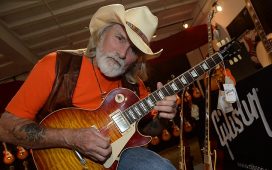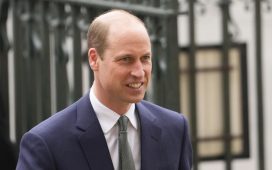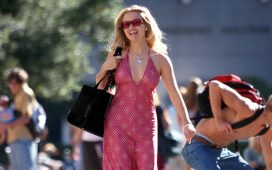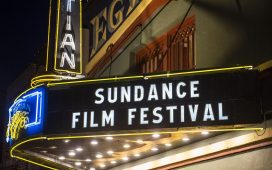FORT WAYNE, Ind. (AP) – Bonnie Baumgartner of New Haven grew up with a mysterious great aunt.
As a child, Baumgartner knew her great aunt lived in Washington, D.C., and, on the rare occasion she would visit, “everything had to be perfect in the house, including us.”
As Baumgartner grew older, she recalls driving her mother to the airport so she could travel to see her relative, by then a widow. Her mother, also a widow, always seemed to enjoy the visits. But that was more or less the extent of what Baumgartner knew.
Not until 2017, when Baumgartner read a book about her great aunt, Elizebeth Smith Friedman, did the mystery begin to unravel.
The book was “The Woman Who Smashed Codes: A True Story of Love, Spies, and the Unlikely Heroine Who Outwitted America’s Enemies” by Jason Fagone, a San Francisco Chronicle journalist and writer of long-form nonfiction.
Baumgartner discovered a woman who was a wife and mother but also fresh out of a spy novel – someone expertly decoding Nazi messages and exposing gangsters while becoming the subject of secret government files unsealed only after her death in 1980 at 88.
“I learned more from the book than I did from life,” Baumgartner, 77, said of her great aunt and her secret life.
Now, many more people have learned about Friedman thanks to a PBS documentary that premiered on Jan. 11 as the season-opener of “American Experience.”
Based on Fagone’s book, and with a bit of help from Baumgartner, “The Codebreaker” sheds light on someone with local roots who is nearly unknown – despite being called America’s first female cryptanalyst.
Friedman’s early years took place in northeast Indiana. She was born into a Quaker family, and grew up on a farm between Huntington and Roanoke. She was the youngest child of nine.
In the early years of the 20th century, she cajoled – and earned – her way into college, a feat few women accomplished.
For two years, she studied English literature and Greek at the College of Wooster in Ohio, where she also took in sewing to earn tuition. When her mother became ill with cancer, she enrolled in Hillsdale College in southern Michigan, where she earned a bachelor’s degree.
After college, Friedman came back to Wabash as “a schoolmarm,” Baumgartner said. Friedman’s job as a substitute principal was temporary, and she wanted to become more than a wife and mother.
She knew that would be her lot if she stayed in Indiana, Baumgartner said.
Somehow, the young Hoosier got to Chicago and a landed a job at the Newberry Library, where a chance meeting with a librarian led to a job from a millionaire benefactor.
He aimed to discover whether secret codes in Shakespeare’s plays and sonnets would prove Sir Francis Bacon, a Shakespeare rival, actually wrote them.
The quest was unsuccessful, but the job was not in vain, because the young scholar met her husband-to-be, William Friedman. She was also introduced to the study of codes, where she found a particular talent.
She and Friedman began working with radio transmission codes during World War I, and the pair’s expertise led them to Washington, D.C., and pioneering codebreaking work for the U.S. military.
During Prohibition in the 1920s, Elizabeth Friedman cast her lot with the Coast Guard, intercepting and decoding radio messages from alcohol smugglers – around 12,000 from 1927 to 1930 alone. She also testified against the gangsters in court, helping gain convictions.
World War II found Friedman working against a notorious pair of spies for Japan and against a Nazi plan to attack the United States from Latin America. Her work was part of an effort to intercept messages by an agent of the SS, the Nazis’ elite secret security force, and code-named Sargo.
But because of the times in which Friedman lived, Baumgartner said, she was under pressure to have some of her work credited to her husband. Perhaps she resented it, although after the war, she worked to archive his contributions, Baumgartner said.
Combing through archives led to the book, said Fagone, who became curious about the history of the National Security Agency because of the notoriety of whistleblower Edward Snowden in the last decade.
As he read and researched the topic, “all roads led to William Friedman” as a codebreaker and founding force, Fagone said. Then he learned that Friedman was married and had a wife who was also a codebreaker.
“How many husband-and-wife codebreakers could there be?” he wondered.
“I realized I had stumbled onto this amazing woman, this hidden woman, with this completely unique skill set,” Fagone said, and from then on, the story “just jumped off the page at me.”
Fagone worked on the book on and off for about three years, with about half that time spent trying to locate Elizebeth Friedman’s World War II records. When he finally found them in the National Archives, he said, “they were the two best days of my life.”
Astonishingly, records revealed that after the war, FBI chief J. Edgar Hoover publicly took the credit for smashing the Nazis’ New World front for his agency, Fagone said.
Like a wayward spy, Elizebeth Friedman and her contributions disappeared.
Only in recent years has Friedman, mother of two children, been recognized. She has been named to the National Security Administration Hall of Honor and had an NSA building named for her. She is also the namesake of a building at the College of Wooster and a Coast Guard cutter.
Baumgartner said her involvement in the documentary came after she contacted Fagone to compliment him on the book. He later put her in touch with the PBS filmmakers, who asked her assistance in finding local and family information.
“I provided as much as I could and went to the Huntington library to gather info and so forth,” said Baumgartner, who worked in accounting for Rea Magnet Wire for 30 years.
She said Friedman also has several other relatives who still live in the Fort Wayne area. Fagone said he thinks the documentary is “wonderful” and happy that they have rediscovered their family connections.
“A lot of her extended family didn’t know what she had done, and now they take pride in her as an illustrious ancestor,” he said.
At one point, Baumgartner said, she asked Fagone why he took such an interest in her great aunt.
“He said he could tell when he opened the files she had to take the backseat and let her husband take the credit for things,” Baumgartner said, “and he felt she wanted her story told.”
__
Source: The Journal Gazette








